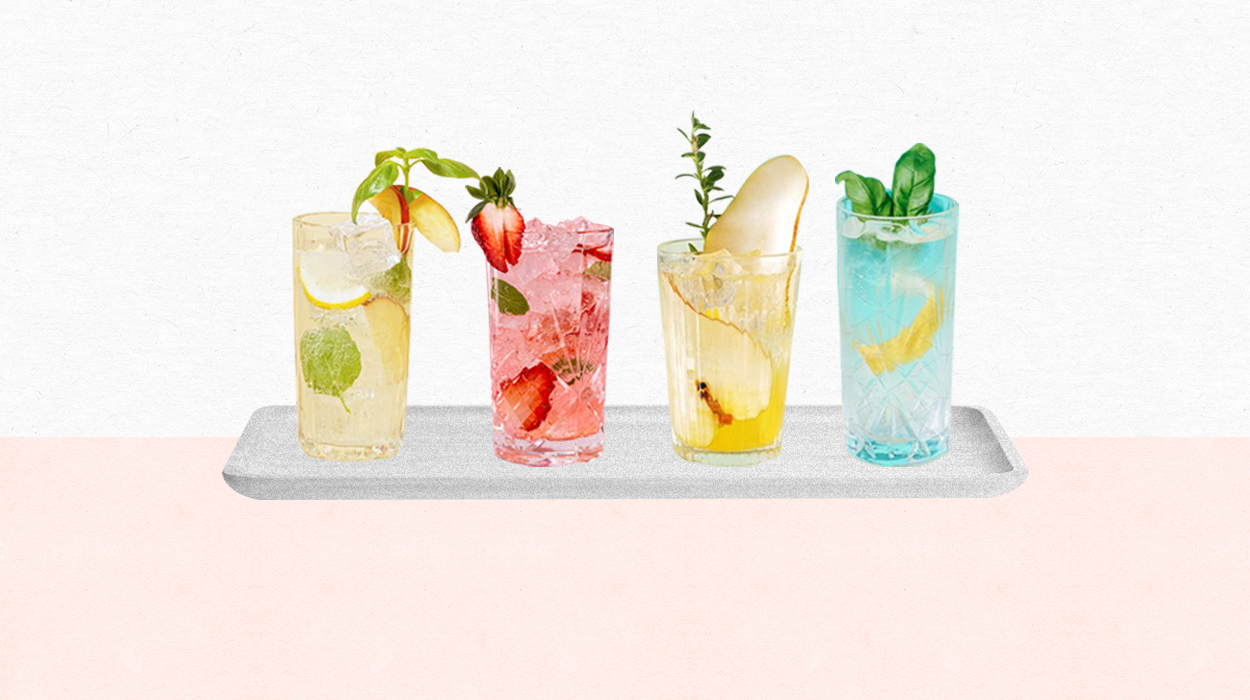 Expert's opinion
Expert's opinion
Expert's opinion
The article is a subjective view on this topic written by writers specializing in medical writing.
It may reflect on a personal journey surrounding struggles with an illness or medical condition, involve product comparisons, diet considerations, or other health-related opinions.
Although the view is entirely that of the writer, it is based on academic experiences and scientific research they have conducted; it is fact-checked by a team of degreed medical experts, and validated by sources attached to the article.
The numbers in parenthesis (1,2,3) will take you to clickable links to related scientific papers.
Is Soda Vegan? Learn About This Popular Beverage With Our Nutrition Expert In 2024

Living a vegan lifestyle is more than avoiding meat, fish, and dairy on your plate. You might be surprised at how seemingly vegan ingredients are processed with animal derivatives — even refined sugar.
Soda is seemingly vegan, but not always. If you’re on a strict vegan diet, learning all about colorings, additives, and processing methods is crucial.
So, read on to find out — is soda vegan?
Is Soda Vegan-Friendly?
Yes, most sodas are vegan-friendly.
However, ingredients like sugar, colorings, and additives won’t explicitly state if they’re made from animal or plant-based derivatives. If you’re a strict vegan, choose products that have a vegan label.
Can Vegans Drink Soda?
Yes, vegans can drink most sodas. There are a few non-vegan ingredients to watch out for, but the majority are suitable for vegans.
However, even if you read the ingredients, you can’t always tell if they’re derived from plants or animals — such as sweeteners, natural flavors, artificial colorings, or other additives.
While sugar comes from plants, like sugarcane, the refining process for cane sugar sometimes uses bone char.[1] This is a decolorizing filter that gives sugar its white color. Bone char comes from charred animal bones, making it non-vegan.
Luckily, many companies state whether their products are certified vegan on the bottle or on their website.
What Is Soda?
Soda[2] is a carbonated drink made up of water, sugar or sugar-free sweeteners, and artificial or natural flavoring. The fizz is thanks to carbon dioxide.
Depending on where you live, you might call it a soft drink, pop, or fizzy drink. It’s loved worldwide, but it can be harmfully high in sugar and low in nutrients.
Original Ingredients In Soda
Sodas were originally just carbonated water and natural sweeteners. With time and manufacturing, they can now include:
- High-fructose corn syrup: A sweetener derived from corn syrup.
- Carbonated water: Water infused with carbon dioxide gas under pressure.
- Sodium benzoate: A preservative that prevents mold and bacteria growth.
- Phosphoric acid: A preservative and flavoring agent.
- Caffeine: A stimulant and flavor enhancer.
- Caramel color: Used for dark sodas.
Health Risks Associated With Soda
With increasing awareness of how sugar negatively affects our health, many want to cut back or buy more natural, healthy sodas.
These are some health risks associated with regular drinking soda — even sugar-free varieties:
- Diabetes, weight gain, and obesity: One can of soda has around 16 teaspoons of sugar,[3] and the average adult should have a maximum of 12 teaspoons. Six teaspoons are recommended to reduce diabetes and obesity risk.
- Sugar addiction: Sugar and sweeteners can increase sugar cravings,[4] causing you to eat more. For some, the combination of caffeine and sugar is especially addictive.
- Heart disease: Sugar can lead to higher blood pressure and inflammation. In a study[5] following over 100,000 women for 20 years, those who consumed one or more sodas daily had a higher risk of cardiovascular disease and stroke.
- Digestive issues: Carbonation and acidity in some sodas can lead to issues like acid reflux,[6] ulcerative colitis,[7] and irritable bowel syndrome.[8]
- Nonalcoholic fatty liver disease: Excess sugar can overload your liver.[9] You may begin to turn sugars into fat, which can remain in your liver and lead to several dysfunctions. Untreated fatty liver disease may cause elevated liver enzymes, inflammation, and even liver cirrhosis.
- Lowered bone density: Soda can lead to a lower bone mineral density,[10] possibly due to high levels of phosphoric acid, which can cause a calcium imbalance resulting in decreased bone mineral density.
- Tooth decay: Bacteria in the mouth feed on sugar and produce a by-product that erodes tooth enamel,[11] leading to cavities and other issues.
- Mental health issues: The excess caffeine or sugar in soda may contribute to restlessness, headaches, anxiety, or depression.[12]
Soda Consumption On A Vegan Diet
As most sugar and artificial sweeteners are plant-based, you can consider diet coke one of many vegan sodas.
However, sweeteners are a huge topic of debate[13] and aren’t necessarily healthier than sugar. The same goes for sports and energy drinks. They’re also full of sugar and not always better than soda — but are also usually vegan.
Cutting back on soda is a hard habit to kick. If it’s something you occasionally enjoy, it shouldn’t be a problem. A diet rich in vegan food like fruits and veggies and green powders is rich in antioxidants, vitamins, and minerals — which can counteract the negative effects of the odd soda.
If you’re in a rush or low on energy, avoid using soda for a quick boost. Go for a healthy meal replacement bar instead. You can also set up a vegan meal delivery service to ensure you always have something healthy available.
Non-Vegan Ingredients In Soda To Avoid
The most common soda ingredients that might not be plant-based include:
- Sugar cane: Sometimes manufactured with bone char.
- Carmine or cochineal: Natural red food dye derived from the cochineal bug.
- Glycerol or glycerine: Solvent or sweetening agent derived from animal or botanical fats and oils. Food sources often use plant-based oils.
- Ester gum: Stabilizer and thickener used in flavor oils in orange sodas. It can be animal-based or lab-produced.
- Gelatin: Thickening by-product made from meat or seafood.
- Natural or artificial coloring: Coloring can be animal or plant-based. To be sure, look for a vegan label on the bottle or check the company website.
- Artificial or natural flavors: Both artificial and natural flavors can be sourced from animal products or tested on animals.
Besides bone char used in the processing of cane sugar, many sodas are vegan and don’t use animal-based colorings or additives. Of course, if you want to be 100% positive you’re getting a plant-based soda, only buy vegan-labeled products or check with the company.
Is Cream Soda Vegan?
Cream soda is a vanilla-flavored soda. It was originally made with ice cream and isn’t usually considered vegan because it might have traces of milk.
Final Thought
Most popular sodas are made with plant-based ingredients and are suitable for vegans. Some ingredients, like natural and artificial flavors and colors, are up for debate since it’s hard to tell if they’re animal or plant-based.
If you want to ensure you’re getting a vegan drink, check the company’s website to see which products are labeled vegan. You can also think about choosing healthier vegan soft drinks, like kombucha or sparkling water infused with fruit.
Frequently Asked Questions
Soft drinks made with bone char, red coloring carmine or cochineal, ester gum, gelatin, or animal-based additives aren’t vegan.
Yes, the majority of mainstream sodas are vegan. It’s mostly local craft sodas that may not be vegan. You can always check the company website to look up its vegan status.
+ 13 sources
Health Canal avoids using tertiary references. We have strict sourcing guidelines and rely on peer-reviewed studies, academic researches from medical associations and institutions. To ensure the accuracy of articles in Health Canal, you can read more about the editorial process here
- Patel, S.M., Han, J., Qiu, W. and Gao, W. (2015). Synthesis and characterisation of mesoporous bone char obtained by pyrolysis of animal bones, for environmental application. Journal of environmental chemical engineering, [online] 3(4), pp.2368–2377. doi:https://doi.org/10.1016/j.jece.2015.07.031.
- Dorota Kręgiel (2015). Health Safety of Soft Drinks: Contents, Containers, and Microorganisms. BioMed Research International, [online] 2015, pp.1–15. doi:https://doi.org/10.1155/2015/128697.
- Miller, C., Ettridge, K., Wakefield, M., Pettigrew, S., Coveney, J., Roder, D., Durkin, S., Wittert, G., Martin, J. and Dono, J. (2020). An In-Depth Exploration of Knowledge and Beliefs Associated with Soda and Diet Soda Consumption. Nutrients, [online] 12(9), pp.2841–2841. doi:https://doi.org/10.3390/nu12092841.
- Wiss, D.A., Avena, N.M. and Rada, P. (2018). Sugar Addiction: From Evolution to Revolution. Frontiers in Psychiatry, [online] 9. doi:https://doi.org/10.3389/fpsyt.2018.00545.
- Pacheco, L.S., Lacey, J., Maria Elena Martinez, Lemus, H., Rosario, M., Sears, D.D., Talavera, G.A. and Cheryl A.M. Anderson (2020). Sugar‐Sweetened Beverage Intake and Cardiovascular Disease Risk in the California Teachers Study. Journal of the American Heart Association, [online] 9(10). doi:https://doi.org/10.1161/jaha.119.014883.
- Li, F., Lin, Q., Yang, Q., Xi, Y., Liu, H., Luo, J., Ouyang, Y., Sun, M., Yong, C., Xiang, C. and Deng, J. (2021). The Association between Free Sugars Consumption and Laryngopharyngeal Reflux: A Cross-Sectional Study among Chinese Adolescents. Nutrients, [online] 13(9), pp.3012–3012. doi:https://doi.org/10.3390/nu13093012.
- Nie, J. and Zhao, Q. (2017). Beverage consumption and risk of ulcerative colitis. Medicine, [online] 96(49), pp.e9070–e9070. doi:https://doi.org/10.1097/md.0000000000009070.
- Nilholm, C., Roth, B. and Ohlsson, B. (2019). A Dietary Intervention with Reduction of Starch and Sucrose Leads to Reduced Gastrointestinal and Extra-Intestinal Symptoms in IBS Patients. Nutrients, [online] 11(7), pp.1662–1662. doi:https://doi.org/10.3390/nu11071662.
- Prasanthi Jegatheesan and Jean-Pascal De Bandt (2017). Fructose and NAFLD: The Multifaceted Aspects of Fructose Metabolism. Nutrients, [online] 9(3), pp.230–230. doi:https://doi.org/10.3390/nu9030230.
- Chen, L., Liu, R., Zhao, Y. and Shi, Z. (2020). High Consumption of Soft Drinks Is Associated with an Increased Risk of Fracture: A 7-Year Follow-Up Study. Nutrients, [online] 12(2), pp.530–530. doi:https://doi.org/10.3390/nu12020530.
- Angelo Michele Inchingolo, Malcangi, G., Ferrante, L., Gaetano Del Vecchio, Fabio Viapiano, Mancini, A., Inchingolo, F., Alessio Danilo Inchingolo, Daniela Di Venere, Dipalma, G. and Patano, A. (2023). Damage from Carbonated Soft Drinks on Enamel: A Systematic Review. Nutrients, [online] 15(7), pp.1785–1785. doi:https://doi.org/10.3390/nu15071785.
- Kadel, P., Schneider, S. and Mata, J. (2020). Soft drink consumption and mental health problems: Longitudinal relations in children and adolescents. Social Science & Medicine, [online] 258, pp.113123–113123. doi:https://doi.org/10.1016/j.socscimed.2020.113123.
- Arun Kumar Sharma, S. Amarnath, M Thulasimani and Ramaswamy, S. (2016). Artificial sweeteners as a sugar substitute: Are they really safe? Indian Journal of Pharmacology, [online] 48(3), pp.237–237. doi:https://doi.org/10.4103/0253-7613.182888.



